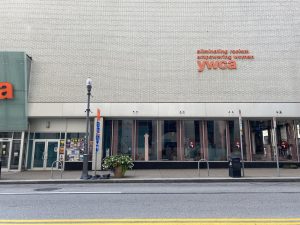Faculty diversity committee moves forward after first active semester
November 27, 2018
The committee for diversity and inclusion began as a fledgling ad-hoc committee in the spring. Now, it’s a standing committee hoping to make teaching styles, course language and faculty more inclusive.
The report outlined a number of findings and recommendations for staff to increase diversity and inclusion in their courses.
Pedagogy – the theories of how education influences students’ growth – is one of the main focuses of the group. Developing an inclusive pedagogical framework was the goal of Jonas Prida, university provost, who helped spearhead the committee. He contributed to the steering committee report, but isn’t a part of the standing committee since he isn’t part of the faculty.
For example, Prida pointed out a hypothetical class about working class literature.
“I might have texts that reflect a working person’s understanding of how America operates,” Prida said. “Then we find somebody who’s a new immigrant to America and we watch a YouTube documentary on what that is like.”
The class could also include exercises to immerse the students in the cultural moment, and recreate the real experience.
“Maybe I don’t allow students to use the washroom. Right? Because if you’re working at a crummy job, you don’t get breaks.”
The point, Prida said, is to expose as many students to as many learning styles as possible.
“It opens up access to different types of students and introduces new material,” Prida said.
In Prida’s opinion, it’s something that colleges and universities have been falling short on.
“Almost every high school already does this. Higher education is just late to the game,” Prida said.
Sandra Shulz, an assistant professor of psychology, chairs the diversity committee. She served on the steering committee over the summer. She said the committee is starting to collect data on how professors offer diversity in course offerings, and will be looking into the training required to create diverse instruction.
“Diversity needs in NSET will look different than psychology,” Shulz said.
One factor which will affect the committee in the future will be the new Title IX coordinator. Shulz hopes the yet-to-be-named faculty member will help bridge the gap between the faculty and the student experience.
“There’s a lot hinged upon this job,” Shulz said, saying that the new coordinator will balance both traditional Title IX duties and work as a diversity coordinator.
Shulz said the development of the committee shows a notable commitment to diversity trends in higher education.
Some changes start at the smallest level. Prida pointed out changing the language of course titles to be more inclusive.
“The title of a course was ‘Africa: Land in Ferment.’ So it obviously has a neocolonialist, I think at best, overtone,” Prida said. “There was another one where it was, ‘An Examination of Primitive Societies.’ We don’t use that terminology anymore because it’s making an implicit value judgement about what that society was like.”
For members of the committee, like Vincenne Revilla, professor of education, one main concern is the dissolution of discourse in the classroom.
“When I was an undergraduate in the 1970s, those classrooms were so lively,” Revilla, a professor at Point Park for over 40 years, said. “Where are we headed if we can’t even listen and share with each other?”
She joined the committee because of her love for the diverse student body at the university.
“When I think diversity and inclusion, I think of the very broadest brushstrokes,” Revilla said, and that includes taking a looking at not only race and gender, but also at varying abilities, learning styles and identities.
The report released by the diversity and inclusion steering committee found a significant gap between student diversity and faculty diversity.
More than 71 percent of the student body is white and over 14 percent is black. However, more than 88 percent of the university’s faculty is white.
The committee has only had a few meetings so far.
In the future, they plan to develop mentoring programs for staff, looking into different places to recruit faculty and working to retain faculty.

















